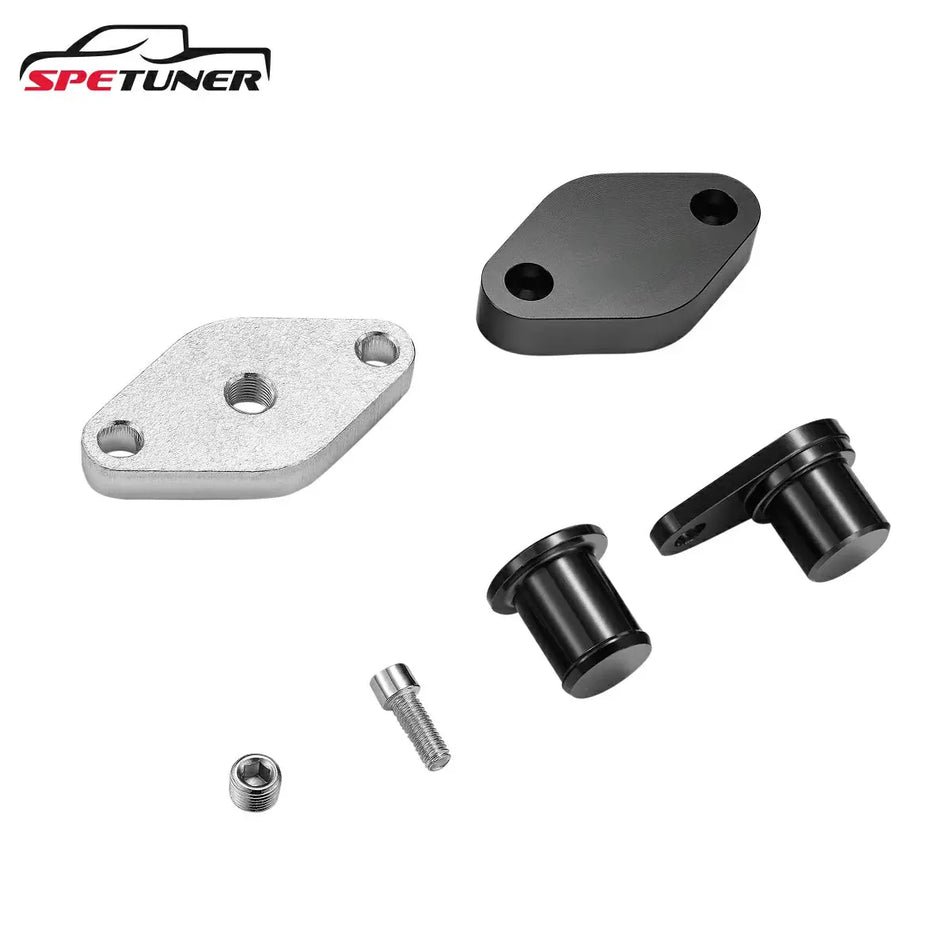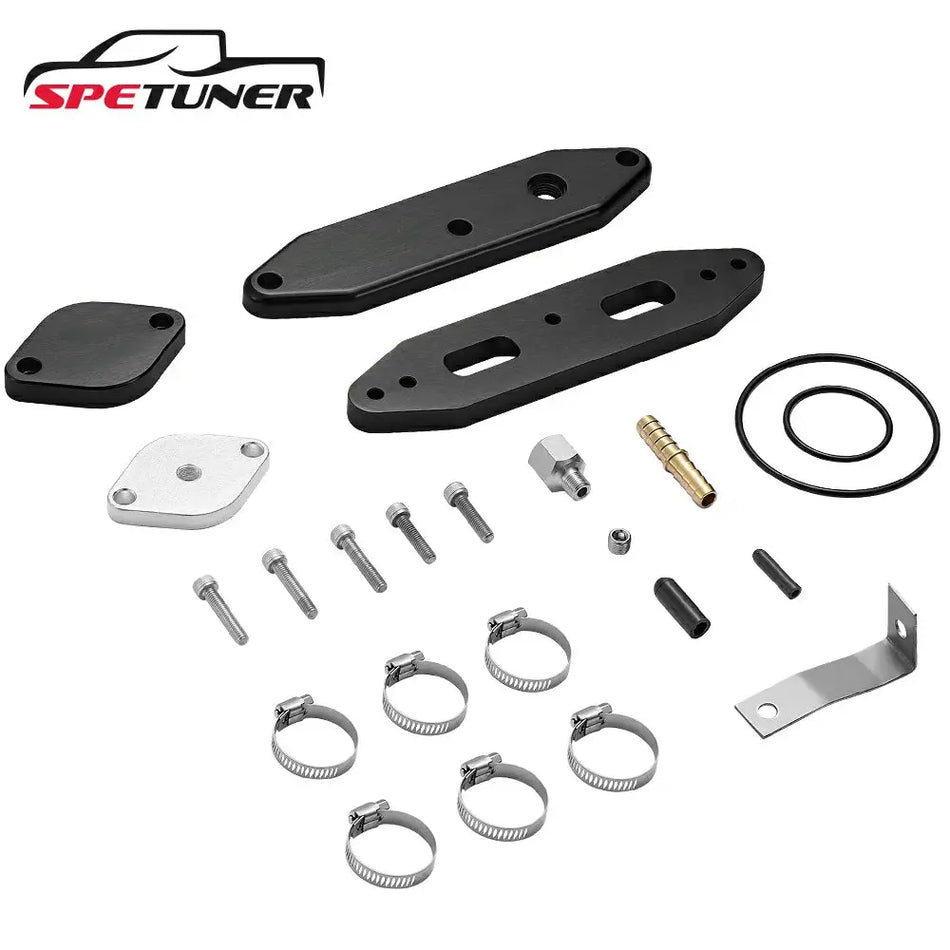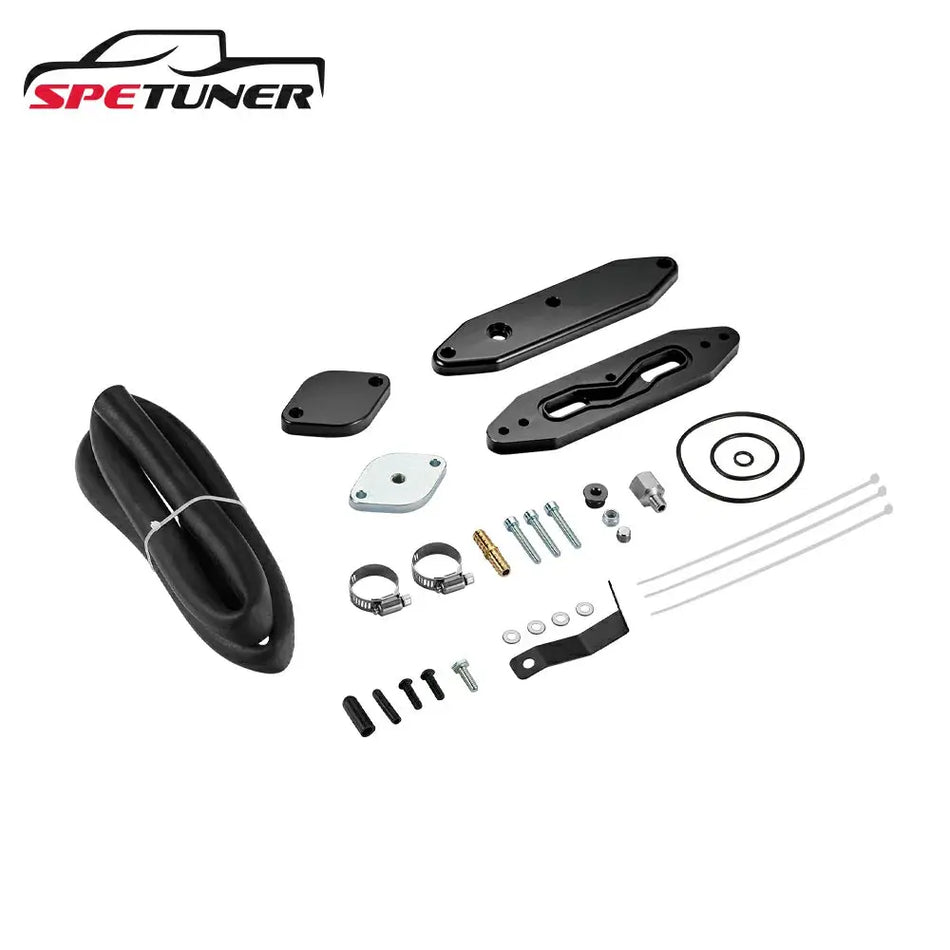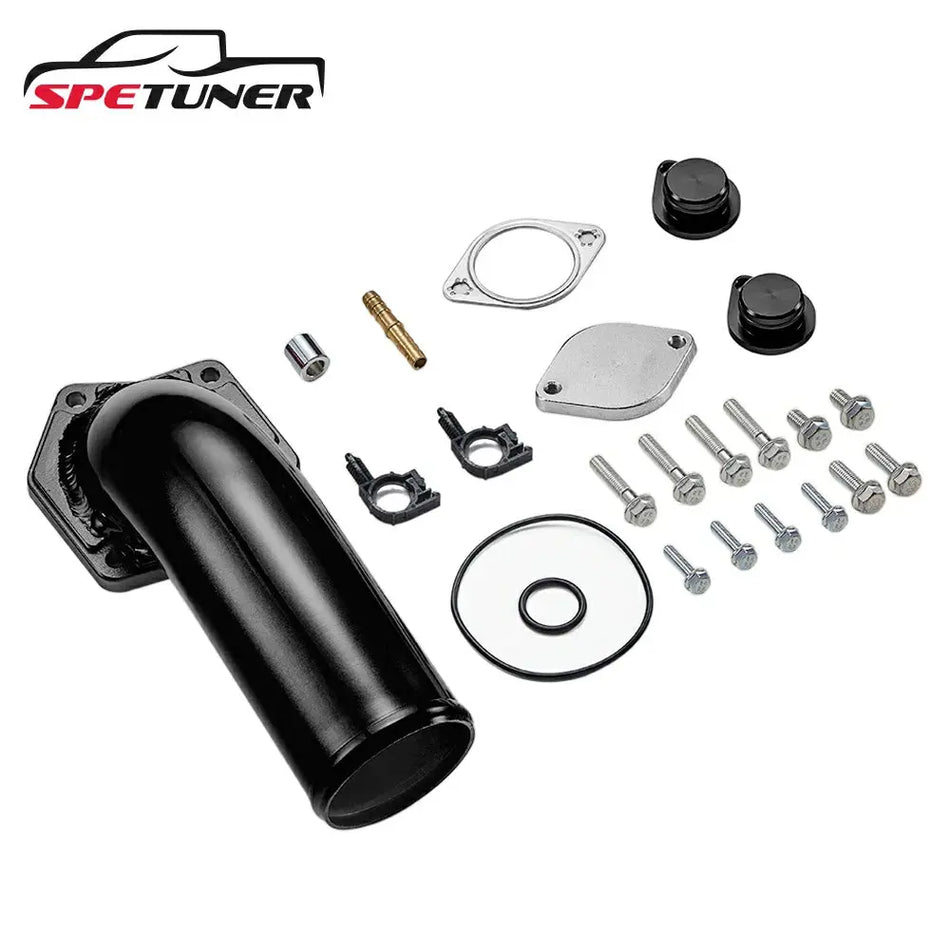Disclaimer:
Modifying or removing emissions control systems, including Diesel Exhaust Fluid (DEF), may be illegal in your region. Regulations from the U.S. Environmental Protection Agency (EPA) and Environment Canada prohibit tampering with emissions equipment. This article is for educational purposes only and aims to help diesel owners understand DEF systems, explore common concerns, and evaluate safe, legal performance and maintenance strategies.
Diesel Exhaust Fluid (DEF) plays a crucial role in modern diesel engines by reducing harmful emissions. But many diesel truck owners often consider deleting their DEF system to boost performance or save on maintenance costs. In this article, we will explore the pain points and common concerns surrounding delete diesel exhaust fluid modifications, examining the potential benefits, risks, and legal implications. Whether you're looking to improve vehicle performance or reduce maintenance expenses, understanding the consequences of deleting DEF is crucial.
Introduction: Understanding Diesel Exhaust Fluid (DEF) and Its Role
What is Diesel Exhaust Fluid (DEF) and Why It Matters
Diesel Exhaust Fluid (DEF) is a mixture of 32.5% urea and 67.5% deionized water used in diesel engines equipped with Selective Catalytic Reduction (SCR) systems. When injected into the exhaust stream, DEF reacts with nitrogen oxides (NOx) to convert them into harmless nitrogen and water vapor.
For heavy-duty diesel trucks, DEF is essential for meeting stringent emissions regulations. Without it, vehicles may fail emissions inspections, trigger warning systems, or even enter restricted performance modes
Why Some Truck Owners Consider Modifying DEF Systems
Truck owners may explore DEF system modifications for several reasons. However, each has potential risks:
-
Performance Concerns – Some believe removing DEF restrictions improves throttle response or horsepower. In reality, gains are often minimal without other upgrades, and removal can cause compliance and long-term reliability issues.
-
Ongoing Costs – DEF fluid costs can add up for high-mileage trucks, but alternative solutions exist to improve efficiency without removing the system.
-
System Failures – DEF components (injectors, sensors, tanks) can fail, especially in extreme climates, but preventive maintenance can reduce breakdowns.

Common Pain Points of Deleting Diesel Exhaust Fluid (DEF) System
Performance and Fuel Efficiency: Myths vs. Reality
Some drivers report small improvements in acceleration or fuel economy after DEF removal, but these results vary and often require supporting modifications.
Test Data Example (source: SAE Technical Paper, EPA studies):
| Condition | Avg. Fuel Economy | NOx Emissions Level |
|---|---|---|
| Stock DEF system | 14.2 MPG | Within legal limit |
| DEF removed (no tuning) | 14.5 MPG | 3–5× legal limit |
| DEF removed + full tuning | 15.1 MPG | 3–5× legal limit |
While short-term fuel gains may occur, DEF deletion significantly increases NOx emissions and may cause other issues such as overheating or ECU fault codes.
Cost and Maintenance Considerations
Typical DEF-related expenses:
-
Fluid refills: $2–$4 per gallon, potentially $100+ per refill for large tanks
-
Sensor or injector replacement: $300–$1,200
-
SCR system repair: $2,000+
Cost-Saving Alternatives Without Deletion:
-
Use high-efficiency DEF systems (newer models often consume less fluid)
-
Keep DEF tanks and lines clean to prevent crystallization
-
Avoid excessive idling to reduce DEF usage

DEF System Failures and "Limp Mode"
When a DEF component fails, many diesel trucks enter limp mode, restricting engine power to prevent damage. While frustrating, this can often be avoided by:
-
Regular system scans with an OBD-II diagnostic tool
-
Seasonal checks, especially in winter
-
Early replacement of failing sensors
Deleting the system removes limp mode triggers but introduces greater long-term risks, including engine inefficiency and legal penalties.
egal and Compliance Risks
In the U.S., removing a DEF system violates the Clean Air Act. Penalties include:
-
Fines up to $4,500+ per violation
-
Possible vehicle impoundment
-
Voided manufacturer warranties
Canada and the EU have similar restrictions. Even in states or provinces with lighter local enforcement, federal or cross-border regulations still apply.

Can Deleting DEF System Avoid Diesel Truck System Failures and Restrictions?
Another significant pain point for diesel truck owners considering deleting diesel exhaust fluid (DEF) is the system's tendency to fail at inconvenient times. When the DEF system malfunctions, it can trigger the truck's "limp mode," which severely reduces engine power and can make it difficult to drive.
The Impact of DEF System Failures on Diesel Truck Performance
Limp Mode and Power Restrictions
One of the most frustrating outcomes of DEF system failures is the activation of the "limp mode" in diesel trucks. Limp mode is a fail-safe feature that limits engine power when a critical system, like the DEF system, fails. This mode is designed to prevent further damage to the engine but often leaves truck owners stuck on the road, unable to continue their journey efficiently.
The DEF system is also connected to various sensors that monitor the vehicle’s emissions. When one of these sensors malfunctions, it can trigger an error code, resulting in reduced power or even preventing the vehicle from starting. This situation can be particularly stressful for truck drivers who depend on their vehicles to stay on schedule.
Can Deleting DEF Completely Eliminate These Failures?
By deleting the DEF system, some truck owners hope to avoid the frustrations associated with system malfunctions. While it's true that removing the DEF system can eliminate the possibility of certain failures, it doesn’t come without its risks. Trucks without DEF will still face other potential issues, such as engine damage or overheating, due to the absence of emissions control components.
In addition, many newer diesel engines rely heavily on DEF for proper functioning. Removing it may cause the engine to run inefficiently, leading to other issues down the line. While deleting DEF might seem like a quick fix for system failures, it could create a host of new problems.

Does Deleting Diesel Exhaust Fluid (DEF) Violate Emissions Regulations?
One of the most important concerns when it comes to deleting diesel exhaust fluid (DEF) is the legal implication. Many truck owners are unaware of the legal risks associated with deleting DEF and what it means for vehicle emissions compliance. In many regions, the removal of DEF is not just a technical modification—it’s a violation of environmental laws.
Does Deleting DEF Make a Diesel Truck Non-Compliant with Emissions Standards?
The Legal Risks of Deleting DEF
Diesel trucks are subject to emissions regulations that are strictly enforced in many regions, especially in North America and Europe. The Environmental Protection Agency (EPA) in the United States and similar agencies in other countries have stringent requirements for NOx emissions from heavy-duty diesel vehicles. DEF is a key component in meeting these standards, and removing it can cause a truck to exceed these limits.
For truck owners who delete DEF, this often means that their vehicle will fail emissions inspections. In the U.S., for example, the Clean Air Act prohibits tampering with emissions control devices, including DEF systems. If caught, truck owners can face fines, penalties, and in some cases, even have their vehicles impounded.
The Consequences of Deleting DEF for Legal Compliance
The legal ramifications of deleting DEF can be severe. Beyond the fines and penalties, truck owners may face restrictions on operating their vehicles in certain areas. Cities or states with strict emissions standards may prevent trucks without a functioning DEF system from being registered, effectively limiting where the vehicle can be driven.
Moreover, manufacturers typically void warranties on vehicles that have been tampered with, including the removal of the DEF system. This could mean that any future repairs or service requirements will be the owner's responsibility, leading to potentially high costs.
How Does Deleting DEF Affect Emissions Testing?
Many truck owners are also concerned about how deleting diesel exhaust fluid (DEF) will affect their ability to pass emissions testing, a crucial aspect of vehicle ownership in regulated areas.
Will Deleting DEF Cause a Diesel Truck to Fail Emissions Tests?
How Emissions Testing Works
Emissions testing for diesel vehicles typically involves monitoring pollutants such as NOx, particulate matter, and CO2 levels. In many areas, vehicles must meet specific emissions standards to be deemed roadworthy. DEF plays a crucial role in reducing NOx emissions, and its removal can cause the truck to fail these tests.
With the DEF system deleted, the truck will likely release higher levels of NOx, which is harmful to the environment. This could result in the vehicle failing emissions testing, preventing it from being legally driven or registered.
Avoiding Emissions Test Failures
While deleting DEF might provide a temporary solution for avoiding the cost of DEF refills, the long-term consequences of failing an emissions test can be costly. Some truck owners attempt to bypass the system by using tuning devices or delete kits, but these solutions may not work in all jurisdictions.
Certain regions have robust emissions testing protocols that can detect the absence of DEF. If your truck fails the emissions test, you may have to reinstall the DEF system and potentially pay for the costly repairs that come with it.

Alternatives to Deleting Diesel Exhaust Fluid (DEF) System for Performance and Cost Reduction
While deleting diesel exhaust fluid (DEF) might seem like an attractive option for improving performance or cutting costs, there are alternative solutions that can help achieve similar benefits without the associated risks. Below, we explore some of these alternatives that allow diesel truck owners to enhance their vehicles while staying within legal and environmental guidelines.
Performance Upgrades Without Deleting DEF
Engine Tuning and ECU Remapping
One of the most effective ways to improve diesel truck performance without resorting to deleting the DEF system is by tuning the engine or remapping the ECU (Engine Control Unit). This process can optimize fuel delivery, air intake, and exhaust timing, which can boost horsepower, torque, and overall performance.
With a professional tune, you can significantly enhance your truck's performance without violating emissions regulations. Engine tuning also allows for customization, meaning you can fine-tune the setup to your driving needs—whether for improved acceleration, towing capability, or fuel efficiency.
Upgrading the Exhaust System
Another way to improve performance is by upgrading the exhaust system. A performance exhaust system, such as a high-flow catalytic converter or turbo-back exhaust, can increase airflow and reduce engine strain. This can result in better fuel efficiency and faster acceleration, all while keeping the DEF system intact.
Replacing or upgrading the turbocharger can also help those who need an additional performance boost. More powerful turbos allow for more air to enter the engine, which can result in higher performance levels without compromising the emission control system.
Cost Savings Without Removing DEF System
Efficient DEF Usage and Regular Maintenance
To save on DEF-related costs, one option is to focus on more efficient DEF usage. Some newer trucks have improved DEF consumption rates, meaning they use less fluid over time. Additionally, regular maintenance, such as ensuring that DEF tanks and lines are free of leaks and keeping the DEF system clean, can help reduce the frequency of refills and potential system failures.
Furthermore, proper driving habits—such as avoiding excessive idling and driving at optimal speeds—can also reduce the overall need for DEF, resulting in lower fluid consumption and better fuel efficiency.
Monitoring DEF System Health
Another way to minimize maintenance costs is to monitor the health of your DEF system. By using diagnostic tools or an OBD-II scanner, you can check for early signs of issues with your DEF sensors or injectors before they lead to expensive repairs or breakdowns. Regularly inspecting the DEF system can help extend its lifespan, ultimately saving money on unexpected repairs.

Conclusion
DEF systems play a vital role in reducing harmful emissions and keeping diesel trucks compliant. While deletion may offer short-term savings or minor performance boosts, the legal, financial, and environmental risks are significant.
By focusing on legal upgrades, efficient DEF usage, and proactive maintenance, diesel owners can achieve performance and cost goals without risking compliance or reliability.
FAQs
Q1: What is the primary function of a DEF system?
It reduces NOx emissions from diesel engines, helping vehicles meet environmental regulations.
Q2: How can I improve diesel performance without deleting DEF?
Consider ECU remapping, high-flow exhaust upgrades, or turbo enhancements.
Q3: What are the risks of operating without DEF?
Higher NOx emissions, legal penalties, failed inspections, and potential engine issues.
Q4: How can I reduce DEF-related costs?
Use efficient DEF systems, avoid excessive idling, and maintain system cleanliness.
Q5: Is DEF required in all states and provinces?
Yes, federal regulations in the U.S. and Canada require emissions compliance, even if local enforcement differs.
Q6: Are there regional differences in DEF enforcement?
A6: While some states have less stringent emissions laws, all states in the U.S. are subject to federal EPA regulations. Deleting the DEF system can be illegal in areas with emissions testing or strict environmental rules.
Q7: How does deleting DEF affect truck emissions?
A7: Deleting the DEF system leads to higher NOx emissions, which can harm the environment. It makes the vehicle non-compliant with emissions standards and could lead to failing emissions tests.
Q8: Will my truck pass emissions testing without DEF?
A8: No, your truck is likely to fail emissions tests without DEF, as the system is essential for reducing harmful pollutants. Many states have testing protocols that can detect DEF deletion.
Q9: Does diesel fuel efficiency change with modifications to emissions systems?
A9: You can explain that some owners report small gains after unauthorized modifications, but legal upgrades and ECU tuning are safer and more reliable for efficiency improvements.
Q10: What alternatives exist to deleting DEF for better performance?
A10: You can upgrade your diesel truck’s exhaust system, remap the ECU, or tune the engine to improve performance without removing the DEF system. These methods enhance performance legally and without damaging the engine.









